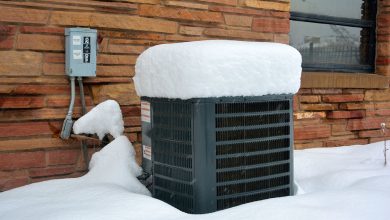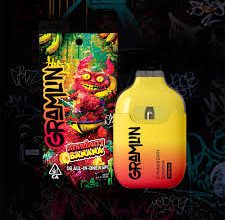Exploring the Different Types of Hospitality Jobs: What It’s Really Like to Work in the Industry
All about food safety training

Have you ever wondered what it’s really like to work in the hospitality industry? From restaurant servers and chefs to bartenders and hotel workers, there are many different types of jobs within the hospitality sector. While each job requires its own unique set of skills, all hospitality workers must have a food handlers certificate or food safety training to ensure food safety. In this blog post, we will explore the different types of hospitality jobs and the skills required to work in the industry.
Hotels
Hotels are one of the most common hospitality jobs and include roles in housekeeping, front desk, food service, and more. Housekeeping staff is responsible for cleaning and maintaining guest rooms, as well as performing other maintenance tasks to ensure the hotel is properly running. This can involve a wide range of tasks from cleaning bathrooms and restocking amenities to changing bedding and vacuuming floors.
Food service staff are the people who work in the kitchens and restaurants within hotels. They must be able to prepare and serve meals and snacks quickly and efficiently. It is important that these staffs have adequate food safety knowledge in order to provide a safe and enjoyable experience for hotel guests. Food safety training is critical to working in a hotel kitchen or restaurant in order to prevent foodborne illnesses. This includes understanding proper sanitation practices, storage procedures, and cooking methods. Those working in the food service industry should obtain a food handlers certificate to show that they understand the basics of food safety.
Event/Catering services
Working in a catering company can be an incredibly rewarding job that involves a variety of tasks. From setting up buffets to preparing and serving plated meals, catering services staff are often the people behind the scenes who make an event or gathering run smoothly.
Catering staff must have a keen eye for detail and excellent organizational skills. Being able to plan ahead and anticipate customer needs is key in this field. Having knowledge of a wide range of cuisine is also beneficial, as catering staff may need to create custom menus for specific occasions.
A successful caterer must be able to work quickly and efficiently while keeping up with safety standards and hygiene regulations. While many of the skills necessary to work in this industry may be self-taught, having adequate food safety knowledge and the proper food safety training is essential for any person working with food. This includes getting a food handlers certificate which increases your understanding the importance of cleanliness when handling food. A food handlers certificate will provide employees with the tools they need to stay informed on safe food practices.

Working in catering services is a great way to learn the ins and outs of hospitality. It’s also a great opportunity for people interested in event planning, as catering staff often assist with organizing and running events. For those looking for a career in hospitality, working in a catering company is an ideal way to get started.
Restaurants
From the kitchen to the front of the house, many tasks need to be done to run a successful restaurant.
Working in a restaurant can be both challenging and rewarding. You’ll be responsible for everything from taking orders to making sure food is cooked to the correct temperature. As a restaurant worker, you will also need to be able to work well under pressure and handle multiple tasks at once. You should also be comfortable communicating with customers, as well as other staff members, as part of your job.
Food safety is also an important part of working in a restaurant. As a restaurant employee, you must ensure that food is handled and prepared safely. Additionally, restaurant workers must know food safety regulations, such as proper food handling and storage practices, and know how to properly clean and sanitize equipment. That’s why it’s important for anyone working in the hospitality industry to have adequate food safety knowledge and to obtain a food handlers certificate.
Having a food handlers certificate demonstrates their knowledge of food safety standards.
Having the right skills and knowledge for the job is key to being successful in the hospitality industry. Working in a restaurant is no exception. Make sure you have adequate food safety training, as well as a food handlers certificate, so you can be confident in your ability to keep customers safe while providing them with quality service.
Bakery
Working in a bakery is all about creating delicious treats for customers to enjoy. It’s a highly creative job where, especially in small artisanal bakeries, you’ll get to use your artistic skills to design and craft masterpieces from the dough. Bakery work also involves a lot of precision, as different types of pastries need to be made accurately in order to be successful.
Food safety is an essential aspect of the bakery business considering eggs, a hazardous food, are a key ingredient in many of the tasty treats. As such, it is important that everyone working in the bakery receives proper food safety training. Having a food handlers certificate shows that you have the necessary knowledge to handle food safely and properly. This will help ensure that customers are receiving the highest quality goods possible. Working in a bakery can be a challenging yet rewarding experience, as you get to showcase your creativity while also being able to serve up enjoyable treats.
Retirement homes
Working in a retirement home is a great way to make a difference in the lives of seniors. With a focus on customer service and providing a safe, comfortable environment for elderly residents. Staff may need to provide assistance to the elderly with basic daily activities such as bathing, dressing, and other activities of daily living. In addition, they may need to help elderly residents with medication management and provide assistance when needed. This type of hospitality job can also involve preparing meals for the elderly, serving meals to them, or cleaning up after meals. To ensure the highest levels of food safety for the elderly population in retirement homes, all staff should have the necessary food safety training and possess a valid food handlers certificate. Staff at retirement homes must have adequate knowledge of food safety, proper hygiene practices, and the ability to handle emergencies if needed.
Daycares
Working in daycare can be an incredibly rewarding experience. Providing care and guidance to young children is no easy task, and it requires patience, understanding, and dedication. For those who enjoy working with kids, daycares are a great choice for a job in hospitality.
One of the key aspects of working in daycare is food safety. As the person responsible for providing meals for the children, you must have adequate food safety knowledge and obtain a food handlers certificate. This ensures that all food prepared in the daycare environment is safe for consumption. It also covers other areas such as cleaning and sanitation protocols and proper storage of food items.
Having food safety training can help you ensure that the children under your care are provided with clean and healthy meals. As a daycare worker, you must also be prepared to handle any unexpected medical emergencies that may arise while caring for the children. Many children suffer from food allergies, which makes this especially important. Keeping a close eye on their health and well-being is of utmost importance, and having the necessary food safety knowledge will make it much easier to handle any issues that arise.
Barista
Baristas are often considered to be the most popular position in the hospitality industry, as they create and serve drinks in coffee shops, cafes and restaurants. The job of a barista is to prepare hot and cold beverages, such as coffee, tea, smoothies and blended drinks. Depending on the coffee shop, they may also be responsible for making pastries, sandwiches and salads.
The job of a barista requires excellent customer service skills, multitasking abilities and excellent knowledge of espresso-based drinks. Baristas must understand how to handle high-end equipment and must take care to keep it clean and in perfect working condition. In order to ensure food safety and quality, baristas need to have some knowledge of food safety and hygiene. This includes knowing how to properly store ingredients, use appropriate gloves when handling food and sanitizing surfaces.
To ensure that baristas have adequate food safety knowledge, they should obtain a food handlers certificate. This will help them understand the importance of food safety regulations. And provide the necessary training to properly handle food in a safe and hygienic manner.
In Conclusion
No matter which hospitality job you decide to pursue, having a proper food safety training and knowledge is an essential component. A food handlers certificate is an excellent way to prove your knowledge in the area. Starting work in hospitality can be a great way to gain experience and make some extra money. So it’s important to understand the different options available. With the right knowledge and skills, you’ll be able to find the best job that suits your needs.




